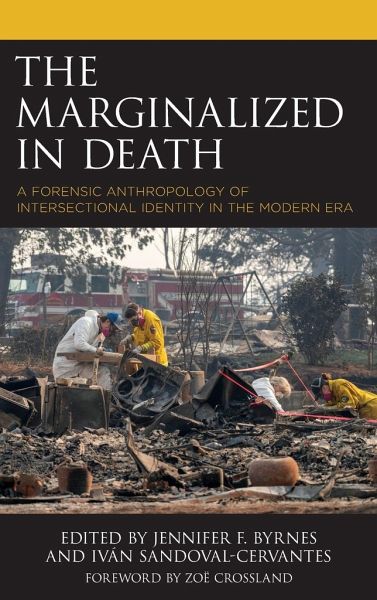
Marginalized in Death
A Forensic Anthropology of Intersectional Identity in the Modern Era
Herausgeber: Byrnes, Jennifer F.; Sandoval-Cervantes, Iván

PAYBACK Punkte
63 °P sammeln!
This volume brings forensic and cultural anthropology closer together through case studies of structural violence and power. Paying attention to how death further marginalizes minoritized populations, this volume goes beyond conventional forensic anthropology and sheds light on the field’s potential to address social injustice.













